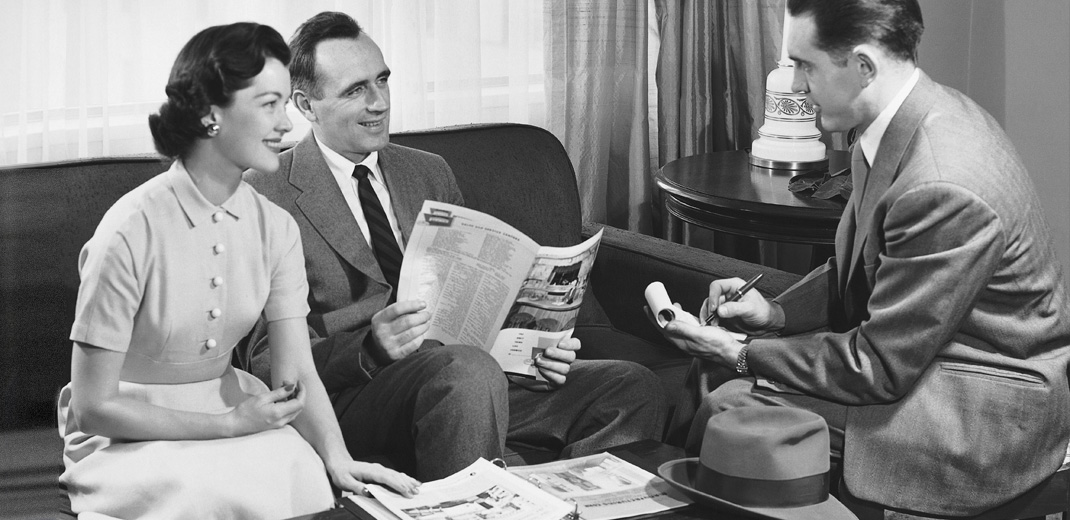Cisco social strategist and comedian, Tim Washer, discusses his approach to content marketing
One of my favorite examples of compelling content produced by a business-to-business (B2B) company is the Cisco Valentine’s Day video. To tell a compelling story that is so outstanding that people want to share it with their friends is great, and to tell the story with $150,000 network server hardware is simply incredible. As you can imagine, I was thrilled when I got the opportunity to interview Cisco’s Tim Washer for the first Thismoment in Content Marketing video.
Tim Washer is the man behind the video and a social strategist for Cisco. His brand work includes IBM and many others, but he also has a background in standup comedy and acting. In fact, if you may remember the T-Mobile commercial with Catherine Zeta-Jones and the awkward husband (best online version I could find is here). That’s him playing the awkward husband.
What better guest to have on the first episode of a new video interview series about content marketing than Tim? Please enjoy Thismoment in Content Marketing’s video debut:
You can find Tim online at TimWasher.com and on Twitter at @TimWasher.
Thismoment In Content Marketing Interview Transcript:
Jason: Hey, everybody. Welcome to Thismoment in Content Marketing, our debut edition from our friends at Thismoment, where we talk to the movers, shakers, cookers, and bakers in the world of content marketing. I am your host, Jason Falls, and this week for our debut episode, we pulled in a good friend of mine and a very talented content marketer in his own right, in many venues, Tim Washer, who sits on many a content team and does social strategy for Cisco. So that’s the big sexy brand thing to dangle out there. But Tim is also a comedian, an actor, a writer, so on and so forth. Tim, how’s it going, brother?
Tim: Hey. Very well. Thank you for having me on the debut show. My publicist has been working on this for a couple of months now.
Jason: [laughs] Yeah. I take bribes and he figured it out.
Tim: All it took is a Whitman’s Sampler.
Jason: That’s true. A Whitman’s Sampler and a shot of bourbon and you’re in.
Tim: Yes.
Jason: Like slim, it’s great. So content marketing, and I want to really kind of dive in because you create some really compelling content for a big brand but you also sort of, in your other life, you do stand up comedy, you create content in lots of different ways and you have a really good grasp of the social world. So from someone who creates content, I wanted to pose this question because it’s a thought that’s been going through my mind lately.
Is content marketing, or are content marketers, the new creatives, like advertising creatives of the 70s and 80s?
Because they were the ones that came up with the big ideas and, to a degree, they still do. But is that what we’re seeing here? Are content marketers the Don Drapers, if you will, of today?
Tim: Yeah, I think they will be there. They need to be there. I think people are still figuring it out. There’s a struggle because you do need this kind of overall strategy that fits the corporate marking directive, but inside there you need to be able to support these pockets of inspiration and creativity. So yeah, we haven’t figured it out yet, we don’t think. But there was an article in Mashable, like, two weeks ago about how large corporations are hiring comedians. I don’t know if that’s full-time. I don’t think that’s full-time. It probably shouldn’t be full-time. But I do think all big brands should be reaching out and building relationships with more artists and creatives and bringing that in to nurture their own marketing and content creators.
Jason: It’s an interesting sort of morphing of the old celebrity model. It’s like, “Hey, let’s go get a get a celebrity endorser, someone who has an audience already built and can create content maybe with us, but maybe we create the content and they just endorse it.” And now we’re going out and finding people who are content creators who aren’t necessarily celebrities, but they’re good at creating content, so comedians, maybe even musicians, actors, etc, etc. So it’s just interesting to see how brands are doing that. Are you seeing more traditional entertainment artists being pulled into those roles or traditional journalists being pulled into those roles?
Tim: Well, both for sure. Like, I was at IBM in 2009, I think. We started hiring quite a few journalists to come in and help us write the content. And they would come on as full-time employees because they knew they could crank out a 1000-word article in no time without even thinking about it and they knew how to tell a story. And that helps not only churning out content but, again, it helps the other people in communications and marketing get a feel for how that is done.
There are the entertainers. I saw some funny spots with Jim Gaffigan, which I always like seeing. And so there’s still that happening where you will reach out to traditional entertainers and bring them in, because you need to stand out. It’s getting harder and harder to stand out now. But of course budget doesn’t go too far bringing in those big entertainers. And then there’s also these YouTube stars. In the last couple of years, we started seeing these YouTube celebrities emerge and they just create their own show in their basement. A friend of mine who is a casting director, she was telling me that some of the TV networks, they say, “Look, let’s hire some of these YouTube celebs to come in and host a TV show.” They cannot get these guys to come in because they’re like, “Why would I do that? I’m making a lot of money here in my basement. I have final cut on everything. Why in the world would I want to go work for another producer?” So it’s fascinating how things have changed just in the last few years.
Jason: That’s interesting. So here’s a question for you, because obviously we’re talking to an audience of marketers out there.
Tim: Millions.
Jason: Yeah, millions. And they have to create content, right? And I think that there’s a big roadblock for a lot of them in understanding that their job is to create content. Even though, in a way, we’ve always been content creator. We’ve just never put that label on it. But can anyone create compelling content? And why or why not?
Tim: Yeah, I think anyone can create, let’s say, content, good content, I think “compelling” is a stretch. You have to build the skills. John Cleese speaks on creativity on the corporate world and Cleese is adamant, he said everybody is creative. There are not creative people and people who aren’t creative. It’s just a state of mind. You need to get in this open state of mind where the ideas flow and you’re having fun and anyone in that state can come up with a great idea.
What they all learn from improv is how powerful the inner critic is and how we shoot down our own ideas even before we write them down or speak them. So I certainly believe everybody can have a great idea. I think execution is a different thing. But I think everybody can start, everybody can create, start with a slide-show that you can produce as a video. Go take a couple of photos or take some Instagram shots that you have already have. Write a couple of captions for them. I mean, just write a short little script. You know, “My Trip to Washington DC”, whatever it was. And dare yourself to make a 60-second video out of five, six, seven Instagram shots and put it together and put it on YouTube and see what happens.
So I do think everybody has that capability. I do think you’ve just got to hone those skills over time.
Jason: So when you sit down to create content for Cisco or for any of the other freelance opportunities that you’ve stumbled across over the years, what’s your creative process like? Is it a setting? Is it a mood? Is it music? Is it booze? How do you get the engine going?
Tim: Yeah, it’s a delicate balance of all of those, for sure. A lot of it for me is, I still struggle with, I think all people struggle with, maybe I shouldn’t say all people, a lot of people struggle with – fear. I still do. And usually when I get a request, “Hey, we need this,” I go through the same process every time. “I can never pull this off. There’s no way. I’m in way over my head. Why didn’t I stay in sales? I should have been a sales guy. Thom McAn.” And then I go fill out an application.
Jason: [laughs]
Tim: But I struggle with it for a while and by a while it could be a week even. But the ideas are kind of popping in, I just typically don’t recognize them. And sometimes it seems like just there’s something that will happen, this spark, just this moment of, like, “Ah, that’s it,” and it’s just a little idea of the concept. And once that hits, I’ll sit down and start cranking it. It just flows. It’s a cakewalk a from there and it’s a joy. Part of it is, my therapist told me this. She said, “You beat yourself up and then the idea will come to you and then you start having fun with it.” And so I’m trying to do a better job of getting into flow and having fun and relax and have a good time. And that’s, again, something I’ve learned from some really good comedy writers.
I took a class years ago from the head writer for Stephen Colbert, a guy named Tom Purcell. And the thing he stressed the most is like, “You’ve got to have fun with this. You cannot make it work.’ Meaning you cannot turn this into work and a burden and something that you dread. And a lot of times when there’s a deadline involved, of course, and you’ve got to get something done, you do feel like, “Okay, this is work.” So it’s not linear at all for me. It’s just, “Let me try to come up with some ideas.” And it’s just, once it pops, it seems, and then I’ll go back and try and revise and tighten it up a bit. But getting that first draft on paper takes some effort for sure.
Jason: Yeah. I’m smiling so big because that’s the way I would have answered the question. I will sit and say, “OK, here’s all the information that I need to get started to think,” and I’ll stress out about it for a week, 10 days. And then one day I’ll just go, “Oh wait, this solves the problem.” And I’ll sit down and type almost the entire plan for the campaign without taking a breath. So been there. Been there.
Tim: Yeah.
Jason: All right. So ketchup or mayonnaise?
Tim: Oh, you know what? I’m going to have mayonnaise.
Jason: Mm. Bad answer.
Tim: I’m not a big fan of either, but if you’re going to force me then it would mayonnaise, yes.
Jason: Webster or Diff’rent Strokes?
Tim: Oh wow, Diff’rent Strokes.
Jason: That’s good.
Tim: Yeah, Diff’rent Strokes without question.
Jason: Good answer.
Tim: But you’re taking me back there.
Jason: Magnum or Micheal Knight?
Tim: [laughs] Magnum. Yeah. Magnum.
Jason: Good answer.
Tim: Don’t we all wish we could look like Tom Selleck?
Jason: When in doubt always go with a mustache.
Tim: Yes.
Jason: Tim Washer, where can people find you on the inter-webs?
Tim: On the inter-webs, I’m at TimWasher.com. Twitter, Timwasher, T-I-M W-A-S-H-E-R like Maytag. And then Facebook, all that stuff, it’s pretty much Tim Washer. I’m not that creative when it comes to naming.
Jason: Just find Tim Washer. Find Tim Washer.
Tim: Yeah. That’s it.
Jason: There you go. And any chance we’re going to see you at The Laugh Factory or any place like that soon?
Tim: You know what, I haven’t done stand-up in the clubs. I usually just do corporate gigs now when I can fit those in and still pop into a commercial. I got a call to play a weatherman on Letterman last week and I just, I had a meeting and I couldn’t make it. That was a bummer.
Jason: Oh yeah, I would definitely have canceled the meeting. That’s just me.
Tim: Yeah. I look back and maybe I should have done that because, if nothing, I’m a good meteorologist. Many people have told me I can be a meteorologist, I could play that role.
Jason: That’s where Dave started. You would be under the microscope there.
Tim: That’s right. That’s right.
Jason: “It’s raining canned hams,” I think, was his line. [laughs]
Tim: [laughs] He got in trouble with the network once for congratulating a tropical storm for being promoted to a hurricane.
Jason: [laughs]
Tim: And he got in trouble for that. But, anyway, it got him to the right place.
Jason: Well, it’s pretty funny in context anyway. Tim Washer, thanks for joining us on Thismoment in Content Marketing. Great to talk to you again and we’ll catch you soon.
Tim: All right. Take care, Jason Falls.
nFalls. Work with him at GoElastic.com.









